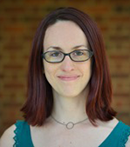
Lab Director
Recent Lab Alumni
Christopher Griffith
Lab Coordinator - accepted to PhD program at UCCS
Lab Coordinator - accepted to PhD program at UCCS
Ashton Spillman
Research Assistant - accepted to PhD program at UT
Research Assistant - accepted to PhD program at UT
Ramsey Wilcox
Lab Coordinator - accepted to PhD program at UIUC
Lab Coordinator - accepted to PhD program at UIUC
PEOPLE

Andrea Coppola, MA
Andrea is a clinical psychology PhD student at the University of Arizona where she is jointly advised by Dr. Andrews-Hanna in the NET Lab and Dr. Dave Sbarra in the Lab for Social Connectedness and Health. She received her B.A. in Psychology from the University of Virginia, and managed Dr. Jim Coan’s Virginia Affective Neuroscience Lab after graduation. She is broadly interested in understanding the mechanisms of the link between social relationships and health. Currently, she is interested in how supportive relationships are established and maintained, and factors that might make those processes difficult for some (e.g., depression, rumination). In her free time, Andrea enjoys making puns, eating carbs, bouldering, and befriending every dog she encounters.
Teodora Stoica, PhD.
Teodora completed her B.A. in Psychology at East Carolina University where she investigated the neurobiological effects of alcohol in animal models. She continued her education at University of Hartford, earning a M.S. in Neuroscience. She shifted her focus toward human neuroscience at Yale University, where she utilized real time fMRI to better understand contamination anxiety. She gained further neuroimaging experience from University of Maryland Baltimore, adding Arterial Spin Labeling and Diffusion Tensor Imaging with fMRI analyses to study Traumatic Brain Injury (TBI) patients. She completed her PhD in Translational Neuroscience at the University of Louisville. Her dissertation investigated how our dynamic neuroarchitecture gives rise to emotional intelligence. Utilizing multimodal neuroimaging techniques, her research illuminated the dynamic interplay between brain networks underlying two emotional intelligence facets: empathy and emotion regulation. As a postdoc in the Neuroscience of Emotion and Thought (Dr. Jessica Andrews-Hanna) & Human Memory Labs (Dr. Matt Grilli), she is using dynamic functional connectivity analyses to investigate brain network changes in an aging population. Apart from her research, she strongly believes that science holds a transformative power over our society’s challenges if communicated correctly. To this end, she enjoys contributing engaging written pieces explaining complex science topics geared toward the general public. She is happiest outside exploring the Sonoran Desert, eating unusual cuisines and playing cello (not at the same time).
Mariam Hovhannisyan, BS
Mariam is a first-year clinical psychology student co-advised by Drs. Andrews-Hanna and Matt Grilli. Mariam is generally interested in how memory changes in older age. Before joining U of A as a graduate student, Mariam worked at Duke University as an RA in the Electric Dino Lab on projects involving memory, aging, neuroimaging, and brain stimulation. She received her B.S. in Cognitive Science from the University of California, Los Angeles. In her free time, Mariam is probably dancing or cooking, or doing both at the same time!
Staff & Research Assistants
Caity Cegavske, BA - Lab Coordinator
Katherine Richard, BS - Project Coordinator
Hannah Burns
Jonah Vega-Reid
Daniel Hernandez, BA BS - Research Assistant
Erin Maresh, PhD.
Erin Maresh is a postdoctoral researcher in the NET Lab. She received her PhD in Clinical Psychology from the University of Virginia, where she worked with Drs. Jim Coan and Bethany Teachman. Her dissertation examined default network hyperactivity as a mediator of cognitive control deficits in socially anxious individuals during social situations. Broadly, Erin is interested in the contexts and conditions under which internally-guided,
self-focused thought is maladaptive, both for individuals experiencing self-focused thought and for their relationship partners, using EEG and fMRI to identify the neural mechanisms behind these processes. She is additionally interested in exploring the opposite end of the self-focus spectrum — situations characterized by reduced self-focus, such as states of flow, experiences of awe, and meditation. When she’s not in the lab, Erin enjoys going to live music shows, making bad jokes, and reminiscing about her time as a roller derby queen.
self-focused thought is maladaptive, both for individuals experiencing self-focused thought and for their relationship partners, using EEG and fMRI to identify the neural mechanisms behind these processes. She is additionally interested in exploring the opposite end of the self-focus spectrum — situations characterized by reduced self-focus, such as states of flow, experiences of awe, and meditation. When she’s not in the lab, Erin enjoys going to live music shows, making bad jokes, and reminiscing about her time as a roller derby queen.
Jessica Andrews-Hanna, PhD.
Jessica is Director of the NET Laboratory and an Assistant Professor in the Department of Psychology and the Cognitive Science Program at the University of Arizona. Since childhood, she has been passionate about exploring the hidden nature of the world around and within us – the science behind what is often obscured from view. She became intrigued by one of those mysteries - the nature of human thought – while in college at Duke University, and further pursued this topic throughout her graduate training in Neuroscience (M.A., Washington University in St. Louis) and Psychology (Ph.D., Harvard University). Today, Jessica is a cognitive neuroscientist who combines behavioral experiments with functional brain imaging and network analysis to bring human thought, emotion, and other internally-guided processes (i.e. memory, prospection, & social cognition) into view. She is passionate about exploring these questions across the lifespan and in a variety of mental health disorders, with an ultimate goal of developing interventions to help individuals harness the beneficial aspects of internally-guided cognition. When she’s not working, you can probably find Jessica on a mountain, trail, lake, or in a tent enjoying the beauty of nature and giving her mind the opportunity to flow freely without constraints on cognition!
Eric Andrews, MA
Eric is a graduate student in the CNS program, where his research interests revolve around using techniques to deepen our understanding of the neural underpinnings of affective/cognitive interactions. More specifically, Eric is interested in the relationship between threat-ladened episodic memory and cognitive rigidity (such as a persistent rumination on distressing experience or a bias against the incorporation of potential safety cues from ambiguous or complicated contexts). He is a graduate of the University of NH where he received his B.A. in Psychology and his M.A. in Counseling. Prior to starting the program at UA, Eric worked as a research assistant at both Dartmouth College and the University of Denver. He has been working as a psychotherapist in private practice since 2008 and maintains a small client base helping individuals with anxiety and trauma-related disorders.
Quentin Raffaelli, MA
Quentin is in the Cognition Neural Systems PhD Program in Psychology at the University of Arizona. He completed his BA at the University of British Columbia in Vancouver, where he became interested in spontaneous thought while working in Dr. Kalina Christoff’s Cognitive Neuroscience of Thought laboratory. He later engaged in some fascinating investigations on boredom and its relationship to attentional decoupling. For his graduate studies, he is interested in exploring the phenomenon of mental exploration. Quentin enjoys exercising by hitting circle-shaped objects as hard as he can in a rhythmic manner; an activity that can barely be referred to as drumming. He is also very fond of movies. He’ll take the Midnight Express to Sing in the Rain in Zombieland with 7 Spirited Away Samurais any Days of the Future Past, (*and Don’t be Afraid to Ask).
VIEW C.V.
VIEW WEBSITE






Alex Keeney
Alyssa Inorio
Ashley Guilmette
Darrell Mason
Rudolf Malusa, BS - Research Assistant
Freya Abraham
Hawra Alsafwani
Kate Chambers
Marissa Luna
Paige Nye
Rose Long
Sthephany Polo
Surya Fitzgerald

Post-Docs & Graduate Students